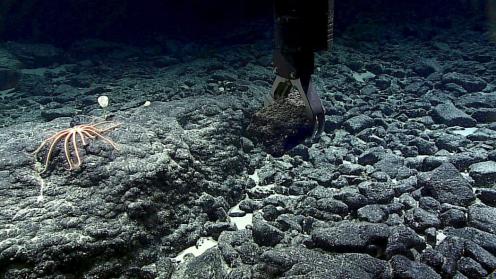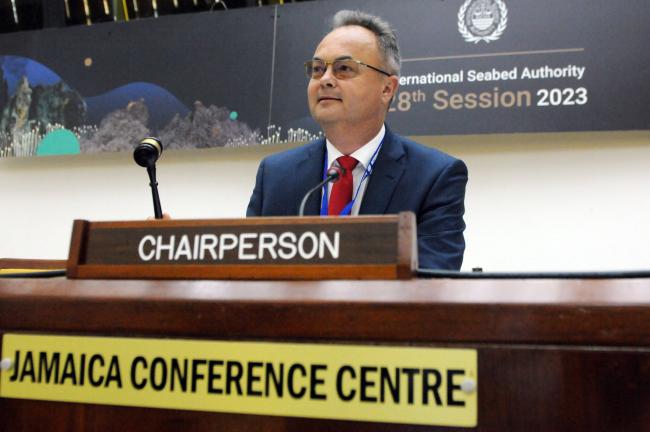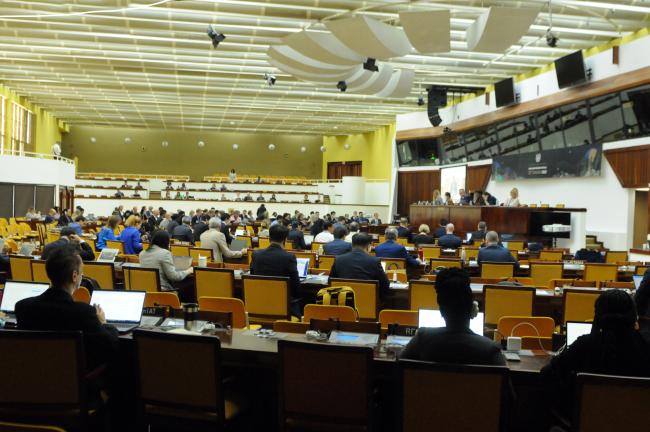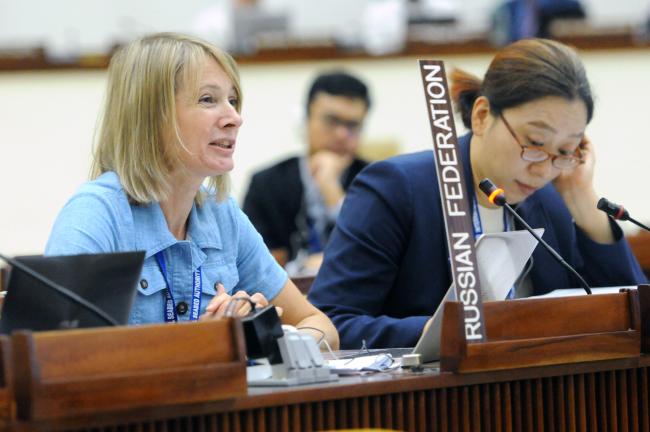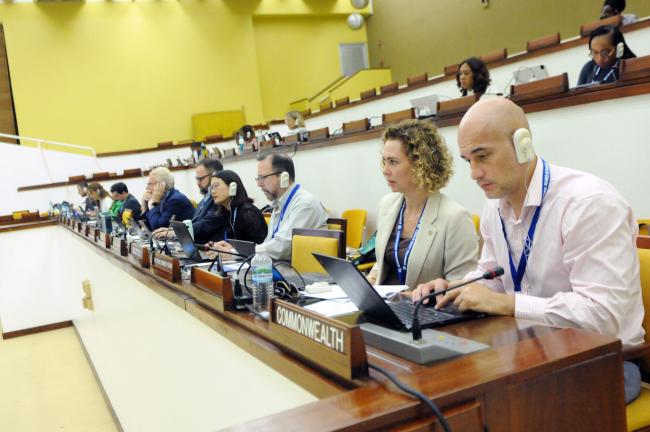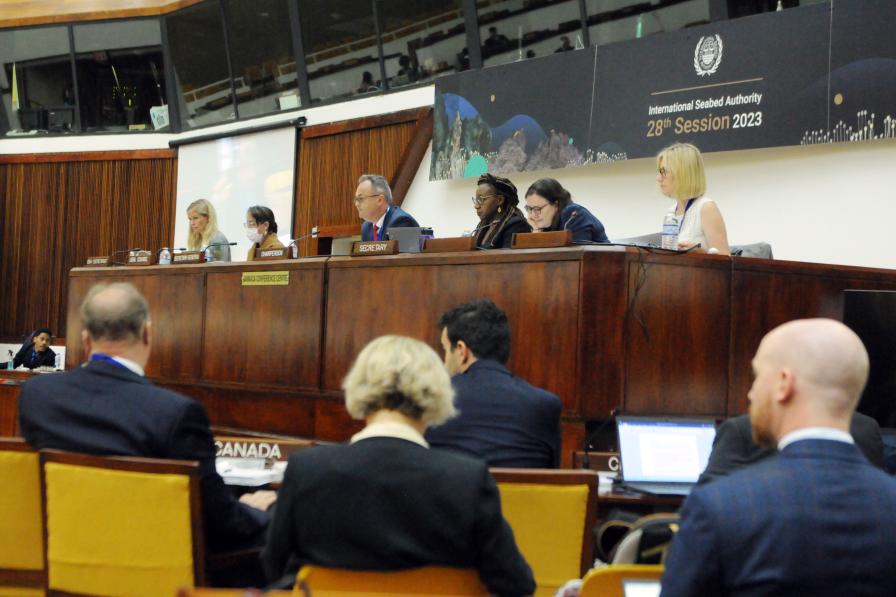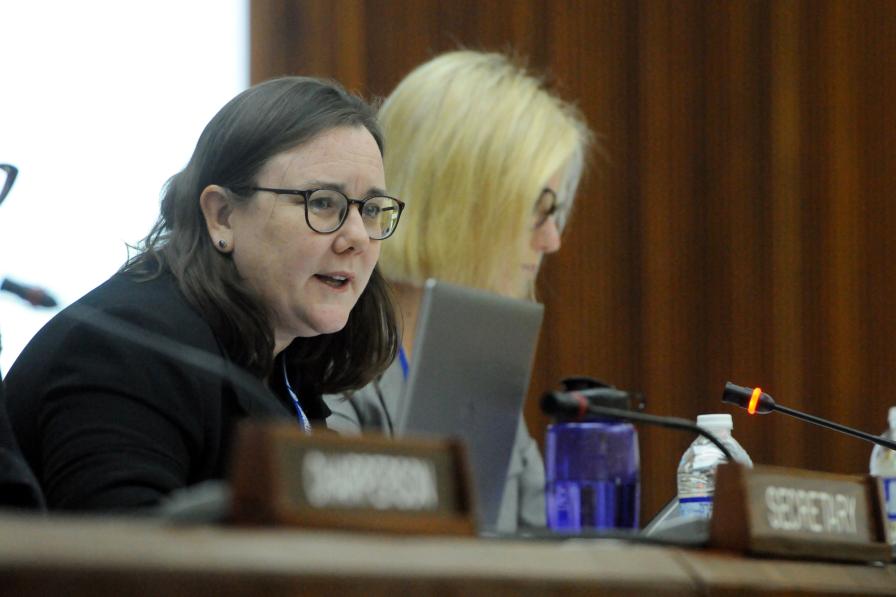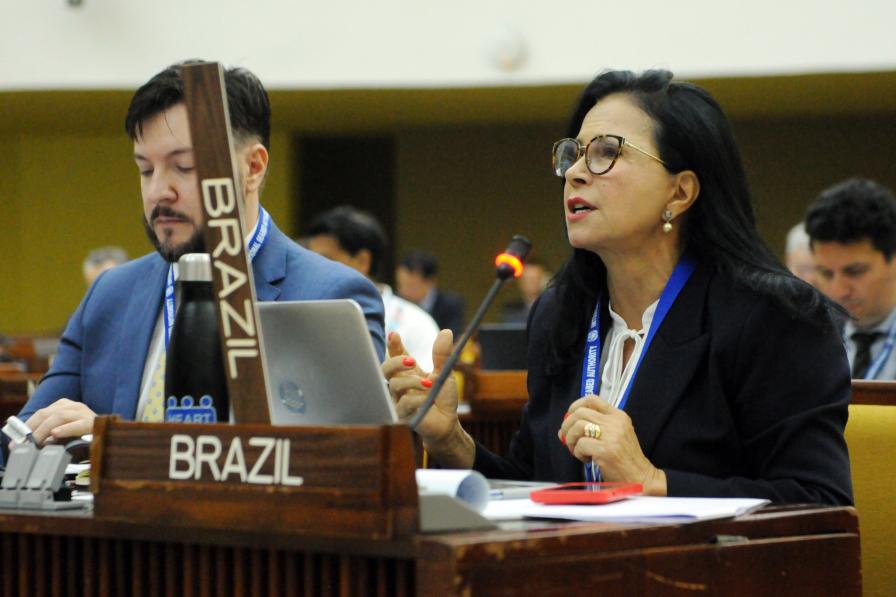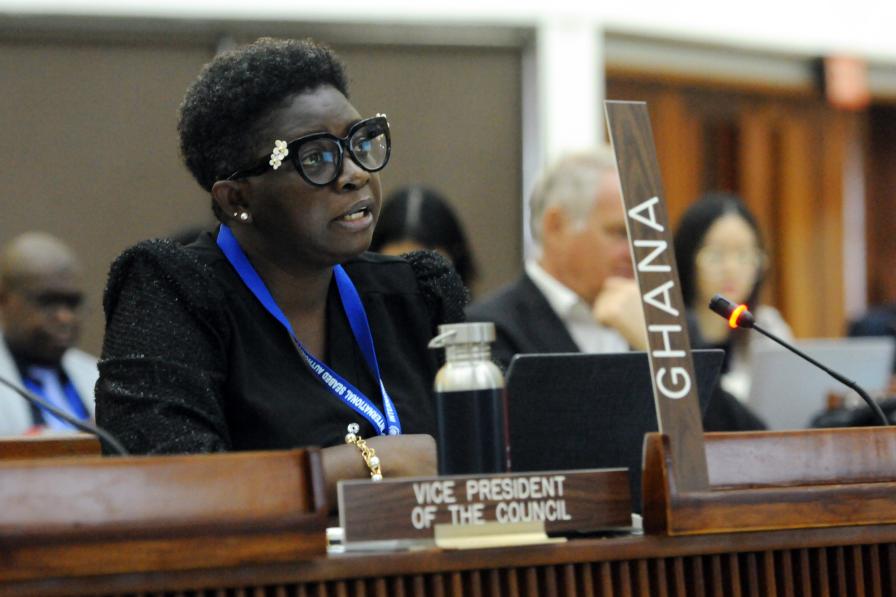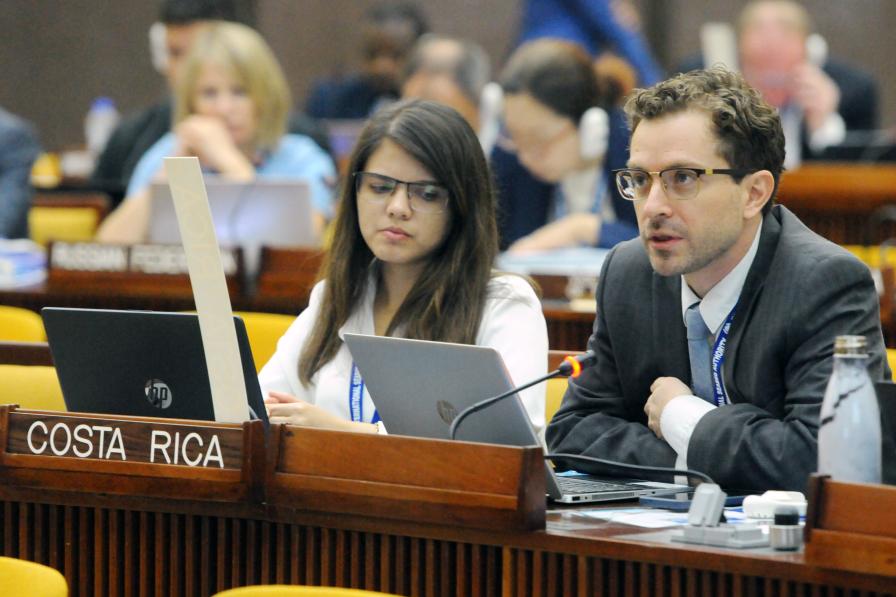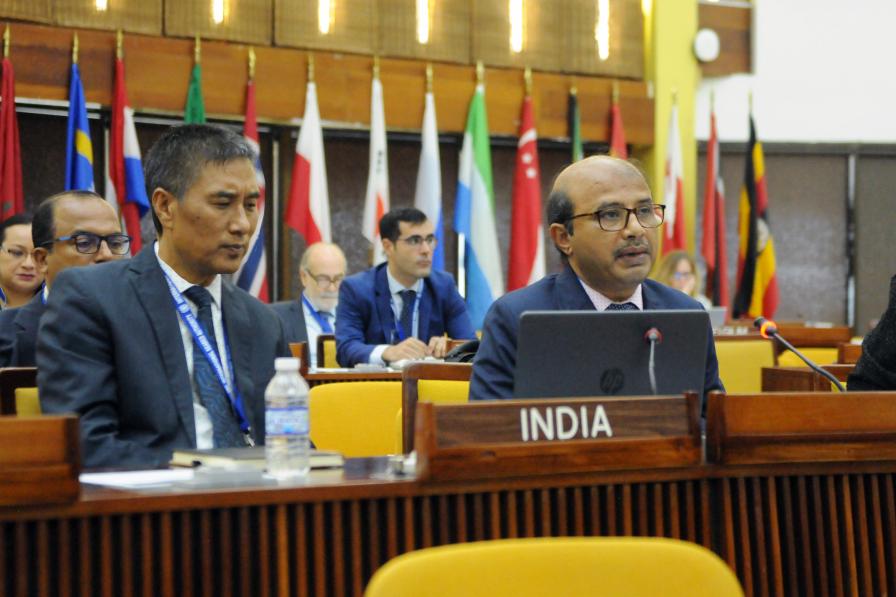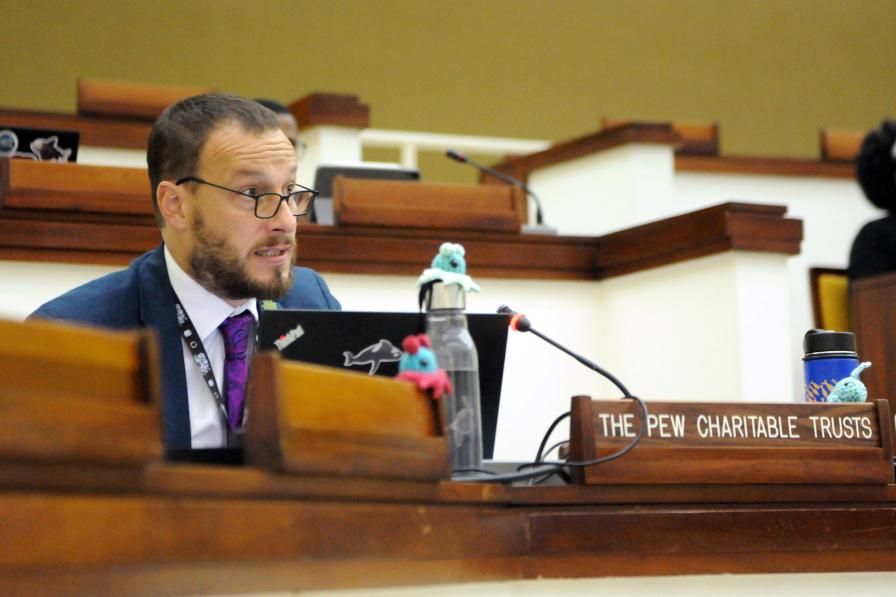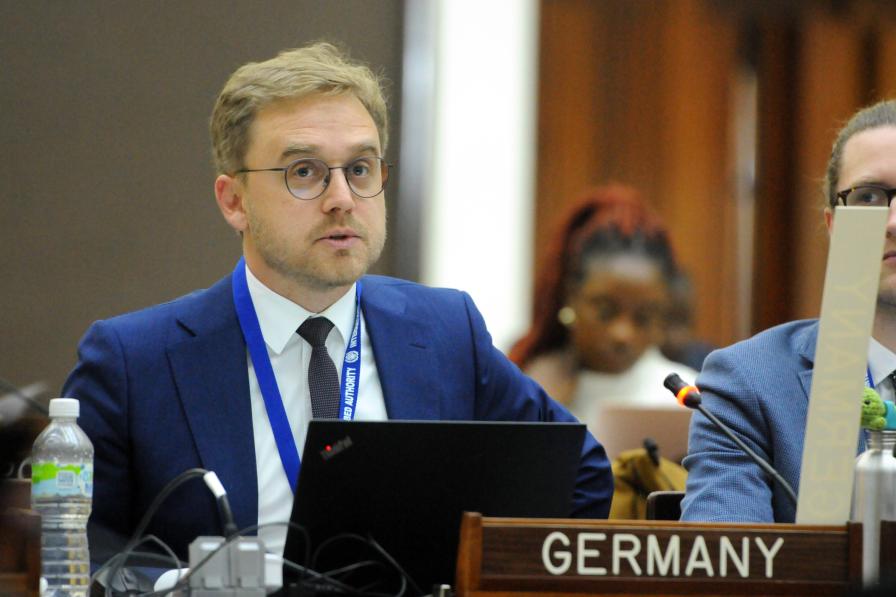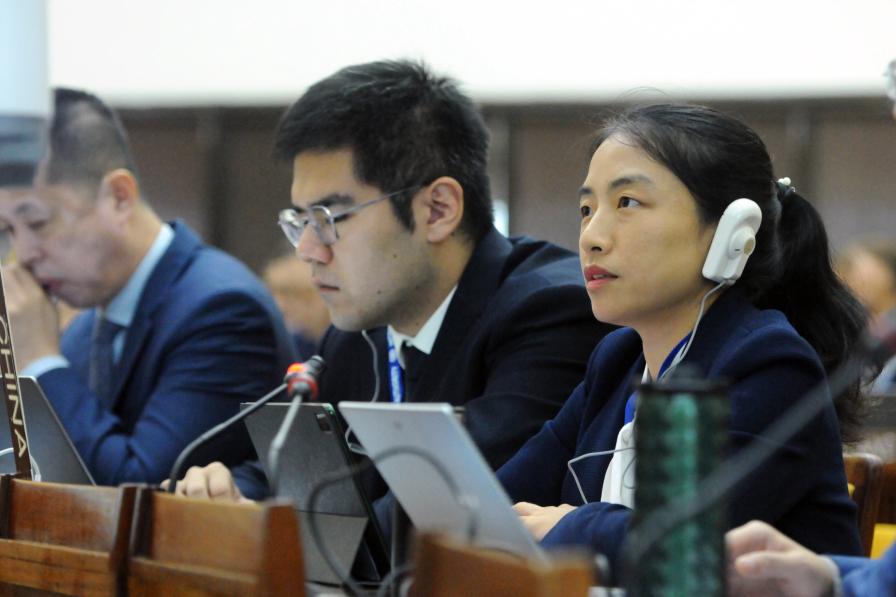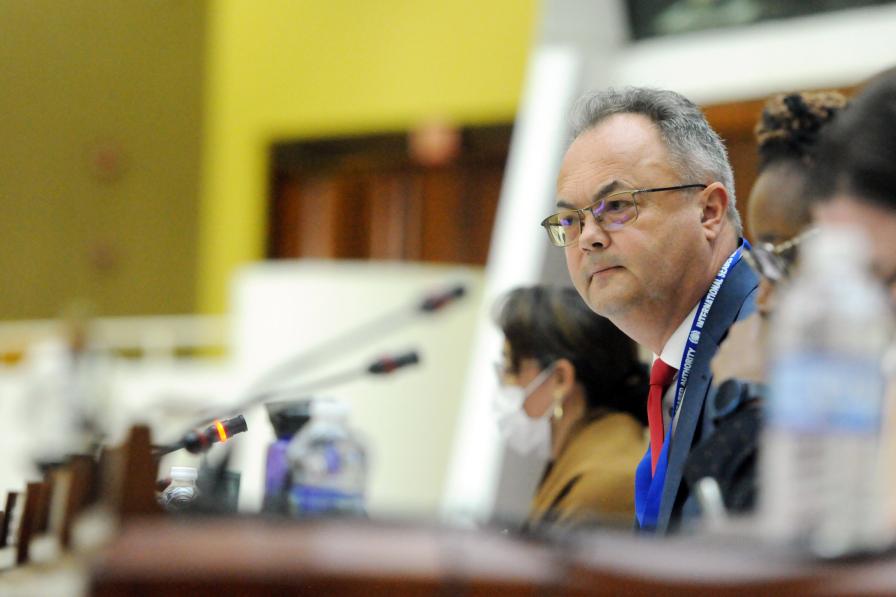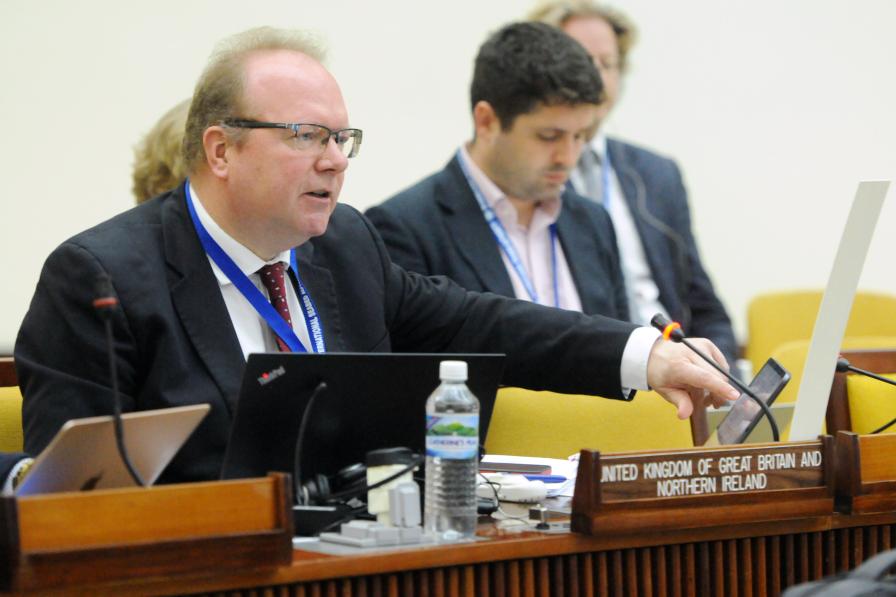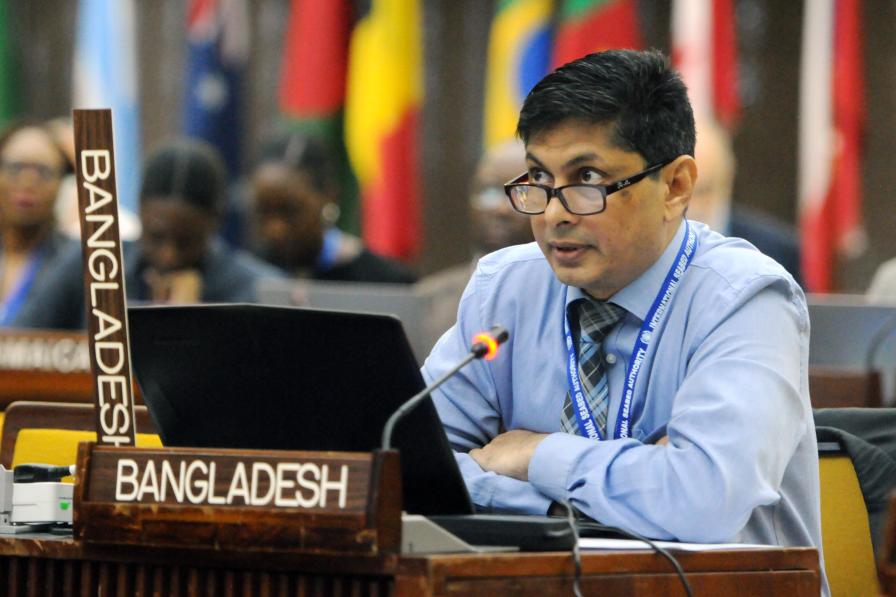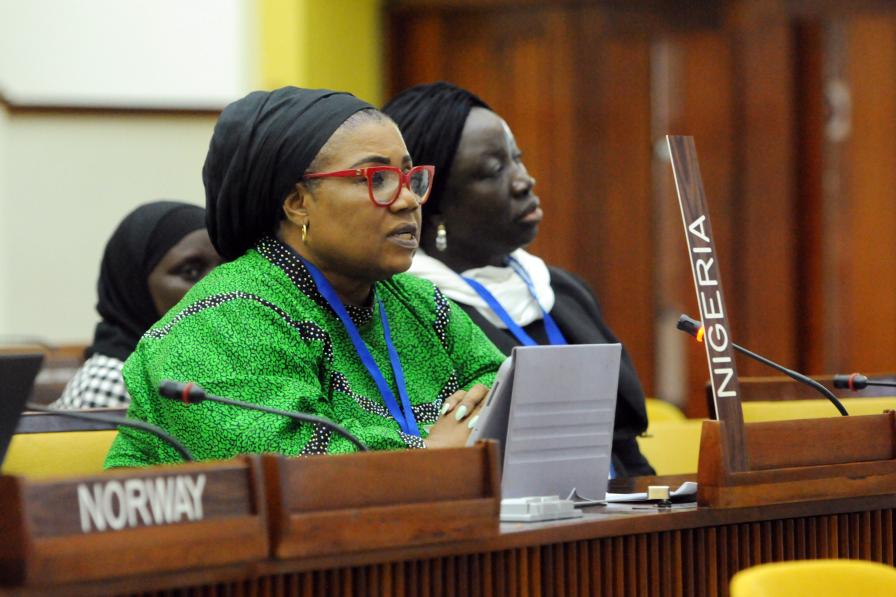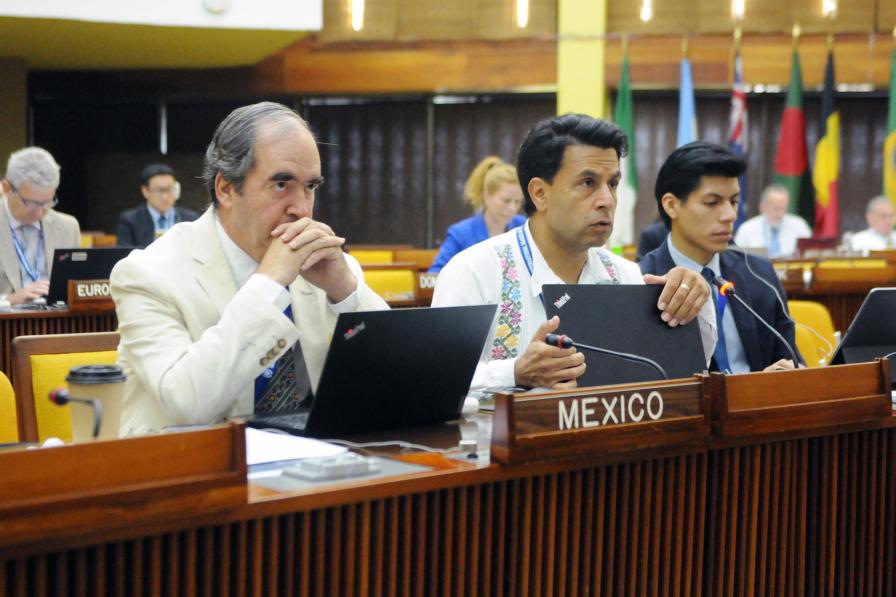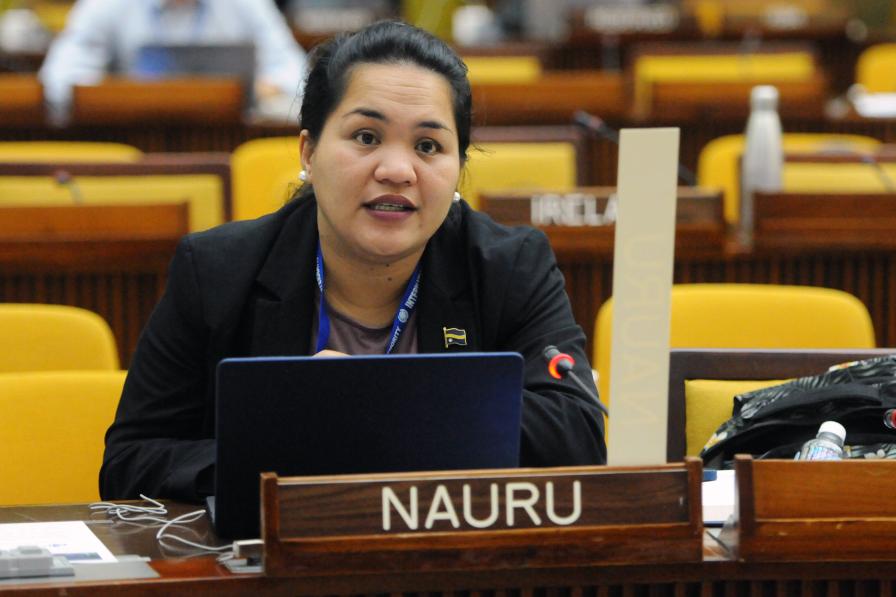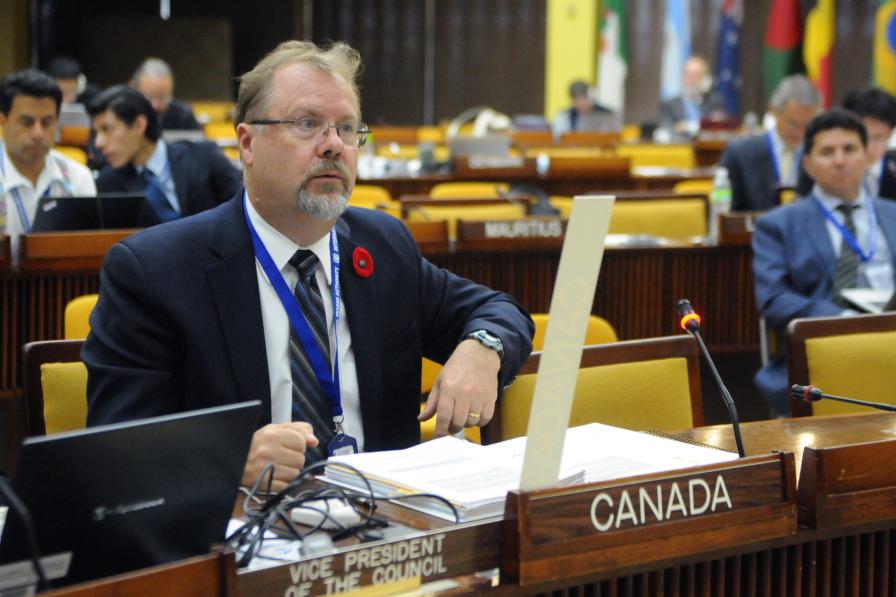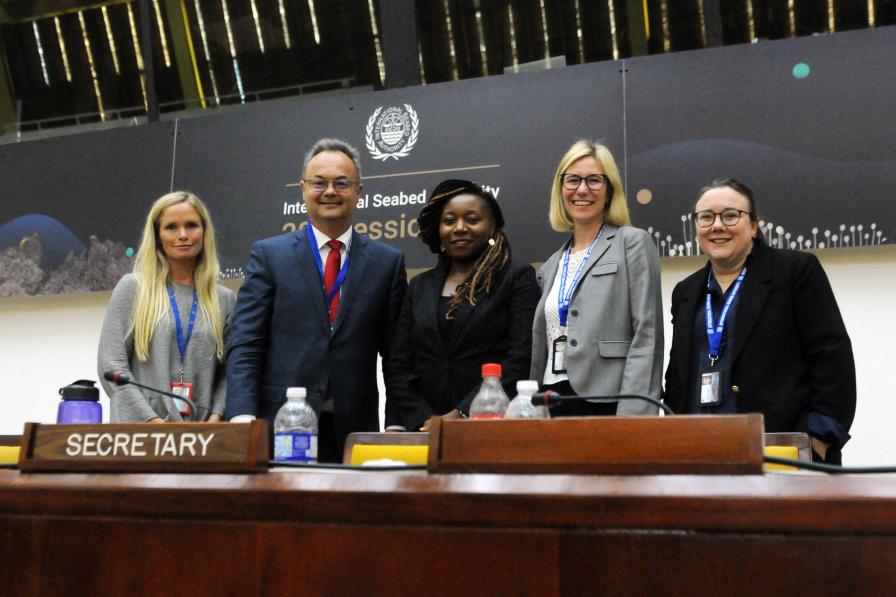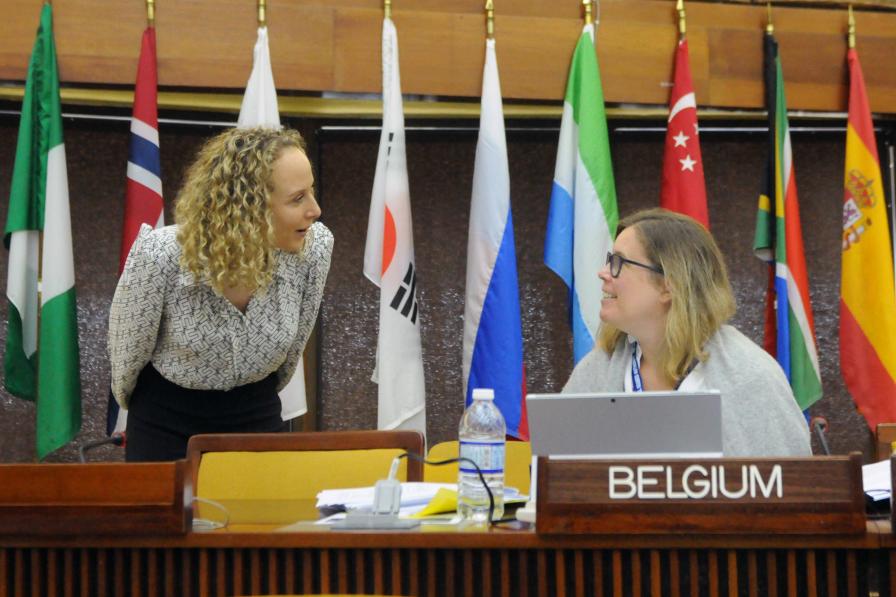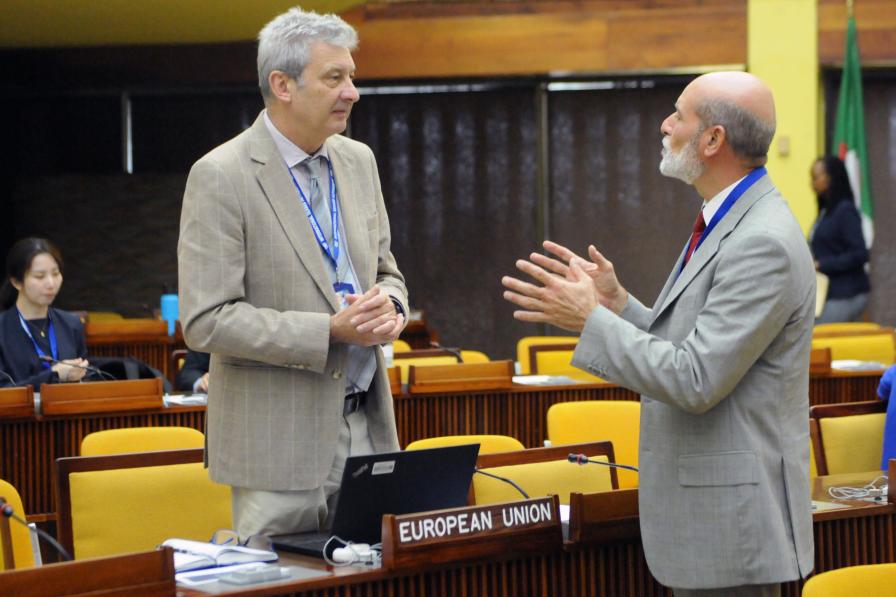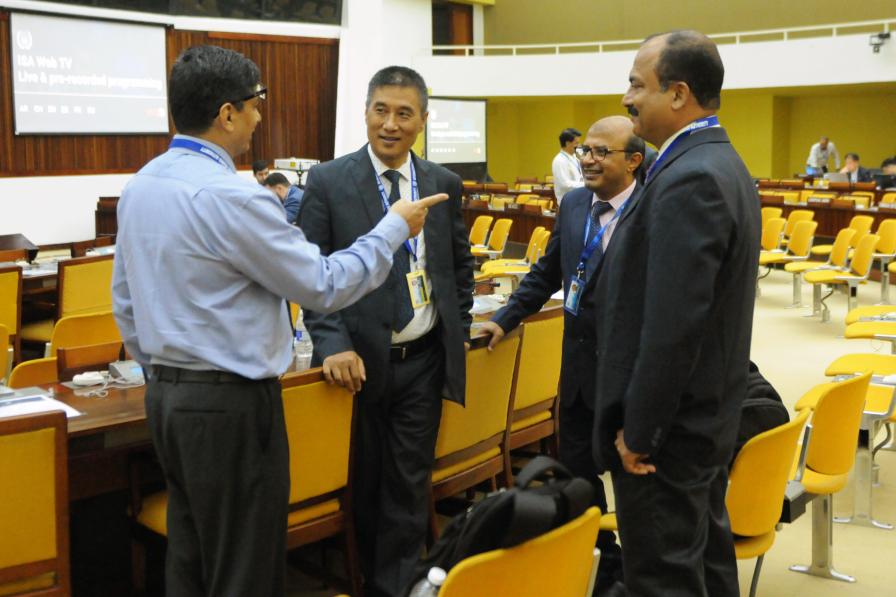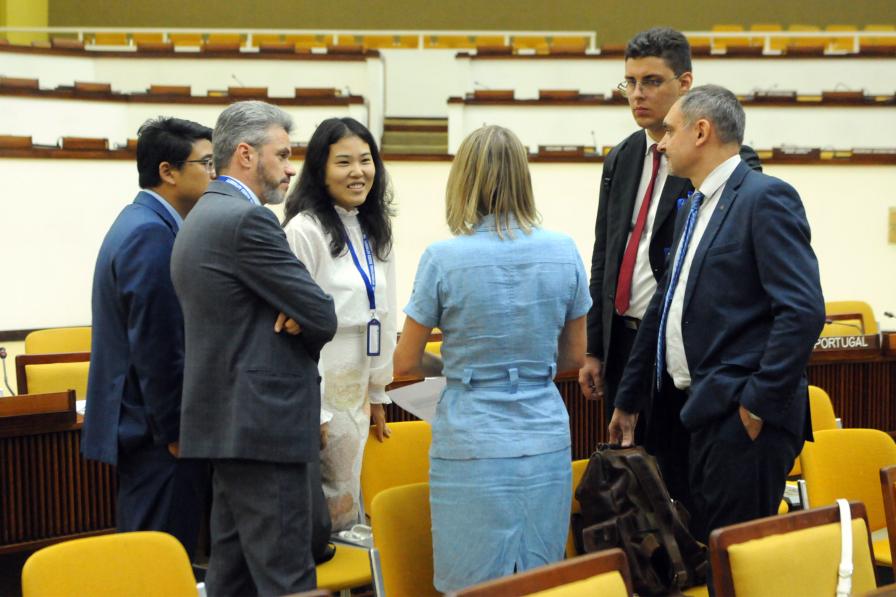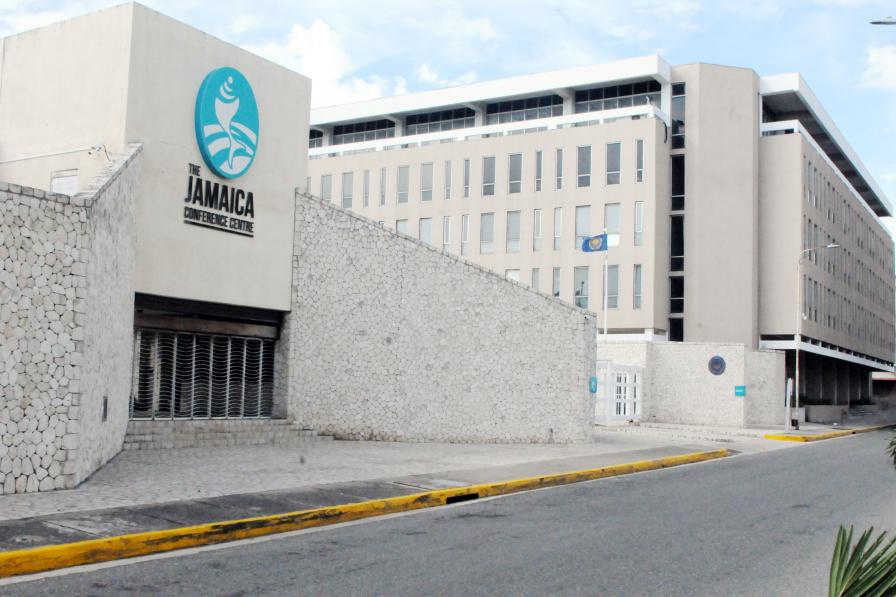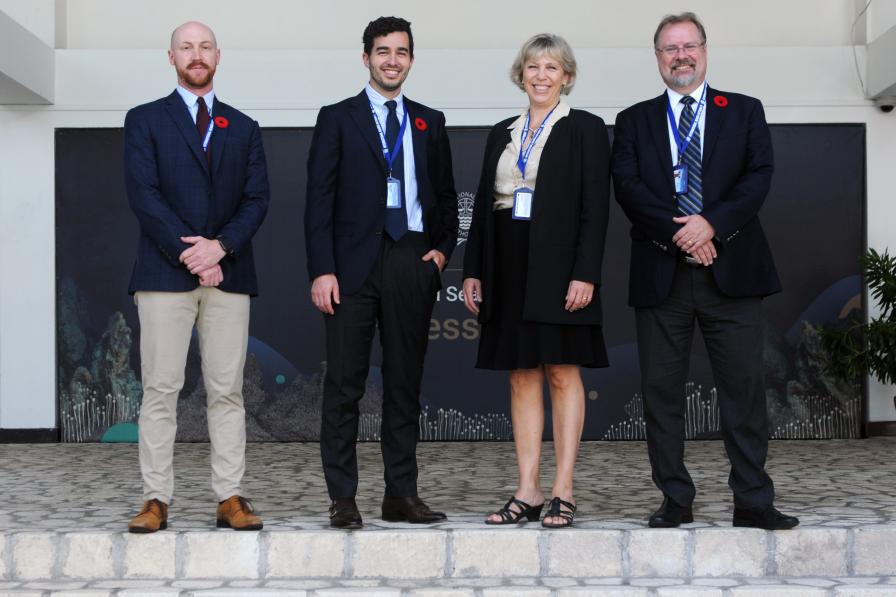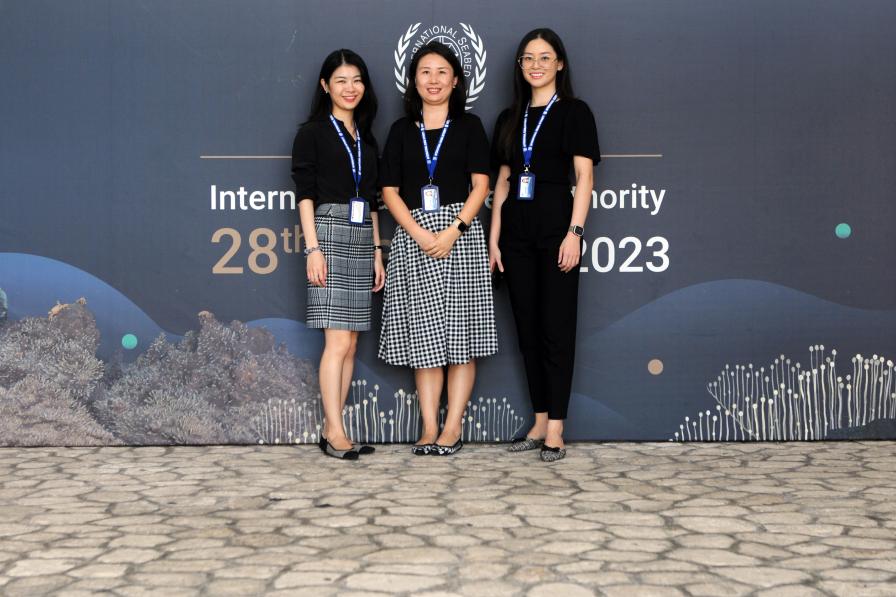Financial considerations on commercial deep-sea mining can be complicated as a variety of contractual considerations enter the equation. They are simultaneously of paramount importance for a holistic regime on seabed mining. Delegates concluded this round of discussions on the financial terms of the draft exploitation regulations, guided by Chair Olav Myklebust (Norway), in the Open-ended Working Group on the financial terms of a contract.
Following Friday’s discussions on equality of treatment (regulation 62), a delegation reiterated the request “to counter any disparity arising out of any grossly incomparable concentration of given resources,” given that the concentration of nodules varies across the ocean.
On incentives (regulation 63), Chair Myklebust presented a proposal based on Friday’s comments. Delegates welcomed it and requested time to analyze it. Some delegations requested retaining the reference to standards and guidelines. Several delegates raised concerns about financial incentives, stressing that contractors are required to comply with all environmental requirements without additional incentives. A delegation pointed out the incentive-related provisions in the UN Convention on the Law of the Sea (UNCLOS), stressing that not all financial incentives or subsidies are prohibited. Chair Myklebust acknowledged these concerns and proposed deleting a reference on incentivizing “contractors to go beyond their existing contractual obligations and good industry practice, in particular in the context of environmental performances.”
On the payment of royalty shown by royalty return (regulation 70), discussions focused on the time the royalty payment is due, the potential for advance payments, and conditions under force majeure for payments by instalments. Many delegates requested clarifications on the special circumstances that would necessitate advance payments, suggesting distinguishing between royalty payments and compensation for impacts to the marine environment. Following discussions, delegates deleted the provision on advance payments.
On payments by instalments, members expressed divergent opinions on what to do during “special and extenuating circumstances of force majeure.” Some delegates stressed the need to retain the possibility of instalments, noting further work is required to agree on the special circumstances. Members expressed divergent opinions about whether the contract should declare the currency to be used upon the completion of the contract or the commencement of commercial production.
Following informal consultations at lunchtime, delegates agreed that the Council may approve payment by way of instalments of any royalty where it determines that any circumstances of force majeure exist that justify such payments, with the precise language to be discussed. On the currency, delegates agreed that it should be declared in the contract, with the contractor able to change the currency at any time, if approved by the Council, or on the anniversary of the fifth year of commercial production and any fifth year thereafter without Council approval.
On information to be submitted (regulation 71), delegates agreed that for each royalty period, the contractor shall include “details of all contracts and amendments to contracts and sale or exchange agreements relating to the mineral-bearing ore sold or removed without sale from the contract area.”
On overpayment of royalties (regulation 73), several members opposed the Secretary-General authorizing refunds as an exceptional measure for a limited number of times per contractor. The provision was deleted. Regarding when the contractor can request to reduce a royalty-related amount after the royalty return has been lodged, delegates retained the bracketed option of one year.
On underpayment of royalties (regulation 73 bis), a delegate suggested if a contractor underpays or does not pay a royalty in due time, the regulations related to inspection, compliance, and enforcement should apply.
On regulation 74, delegates agreed that a contractor shall maintain all records for the duration of the contract and a period of 10 years following the completion of the closure plan and make such records available for audit.
On audit by the International Seabed Authority (ISA, regulation 75), some delegates emphasized audits and inspections are two different functions requiring different expertise. They agreed the Council, on its own initiative or upon request by the Secretary-General or the Legal and Technical Commission (LTC), may request an audit of the contractors’ and all subcontractors’ records associated with the exploitation activities in the Area.
On assessment by the ISA (regulation 76), some delegations welcomed an additional paragraph outlining the process in cases when the contractor is not satisfied with the Secretary-General’s assessment. A delegation suggested a provision for the Council to approve the Secretary-General’s reviewed assessment.
On the general anti-avoidance rule (regulation 77), delegates agreed to continue discussions on the process for a contractor to request a review of the decision related to avoiding, postponing, or reducing liability for any payment.
On interest on unpaid royalty (regulation 79), several delegates agreed the interest rate should be increased according to the non-payment period. The next revised text will include a draft proposal with time intervals and associated interest rates.
On monetary penalties (regulation 80), some delegates suggested moving the details to regulation 103 (compliance notice, suspension, and termination of exploitation contract), and simply stating that, subject, or without prejudice, to regulation 103 and according to the relevant standards, the Council may impose a monetary penalty, proportionate to the seriousness of the violation.
On the review of the system of payments (regulation 81), delegates agreed it shall be reviewed by the Council five years after the first date of commencement of commercial production in the Area and at intervals thereafter as determined by the Council, taking into account the level of maturity and development of exploitation activities in the Area in accordance with relevant standards.
Chair Myklebust thanked delegates for a productive session, highlighted intersessional work on transfer of rights and equalization measures, and closed the working group meeting.
To receive free coverage of global environmental events delivered to your inbox, subscribe to the ENB Update newsletter.
All ENB photos are free to use with attribution. For the 3rd Part of the 28th Annual Session of the ISA, please use: Photo by IISD/ENB | Diego Noguera
Open-ended Working Group on the Financial Terms of a Contract
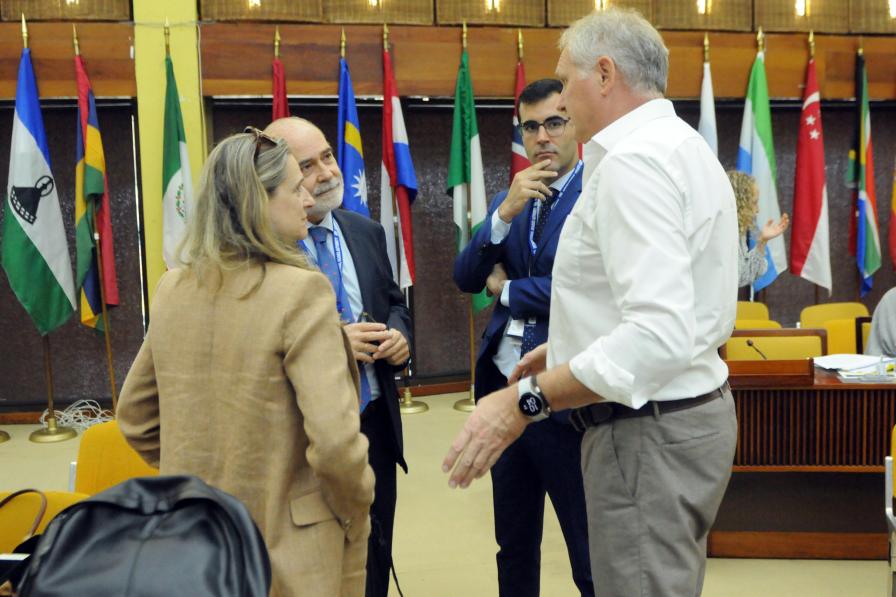
(L-R) Esther Salamanca, Antonio Nieto Magro, Javier San Román, Spain, with Carsten Ruhlemann, Germany

Walter Sognnes (left) and Øystein Bruncell Larsen (center), Loke, in discussions with delegates from the UK
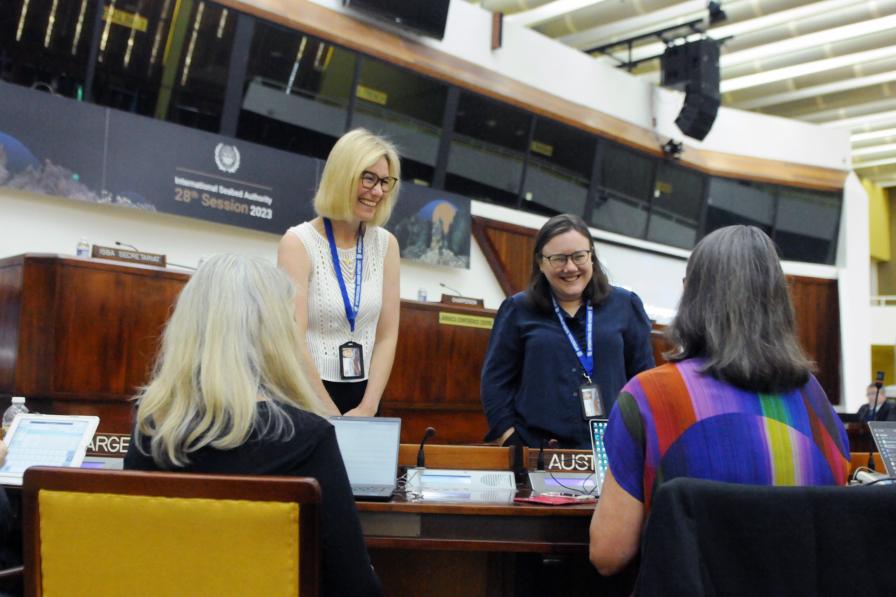
Lisa Koch and Joe Feldman, Norton Rose Fulbright Australia, share a laugh with the Australian delegation.
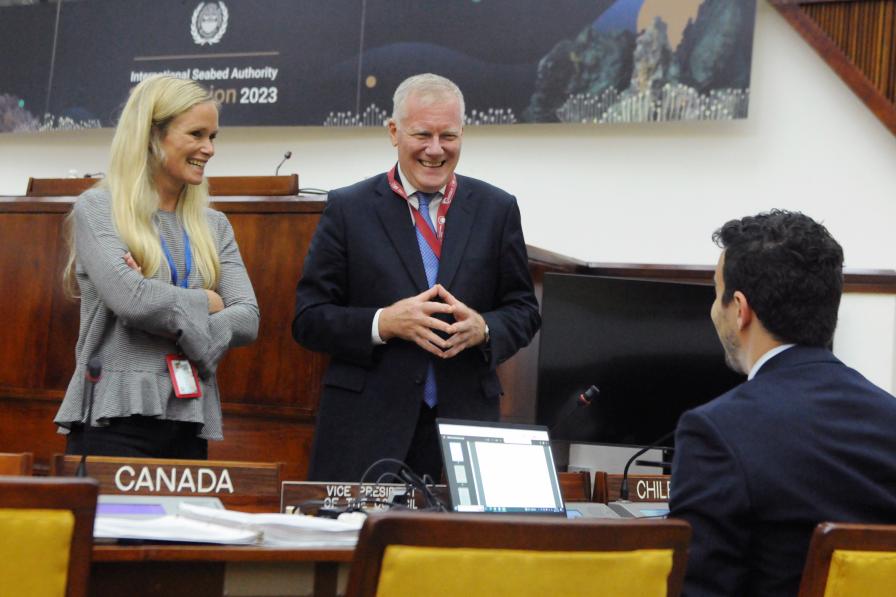
(L-R) Lea Kolmos Weis, ISA Secretariat; Michael Lodge, ISA Secretary-General; and José Benchetrit, Canada
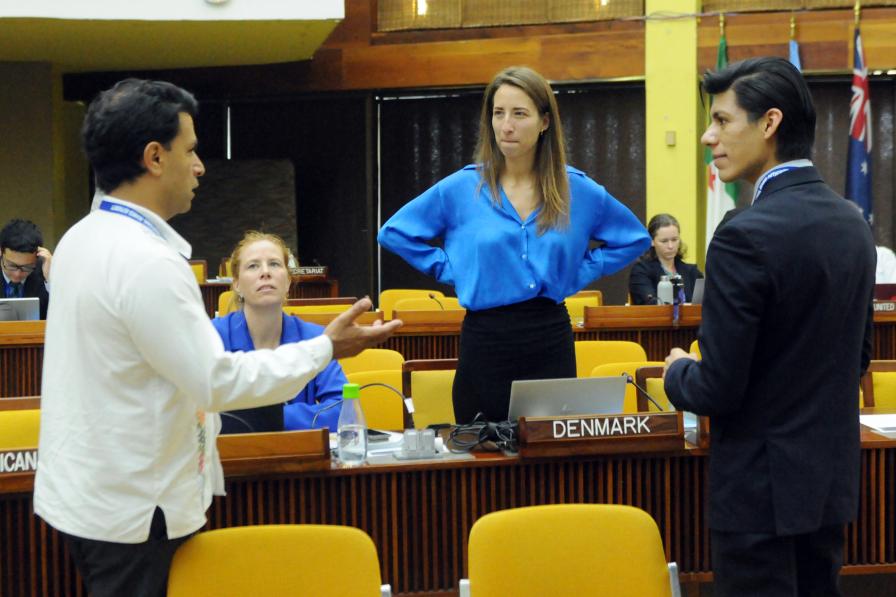
(L-R) Marcelino Miranda Aceves (left) and Edgar Noriega (right), Mexico, with Nathia Hass Brandtberg and Maja Elkjaer Frank, Denmark
